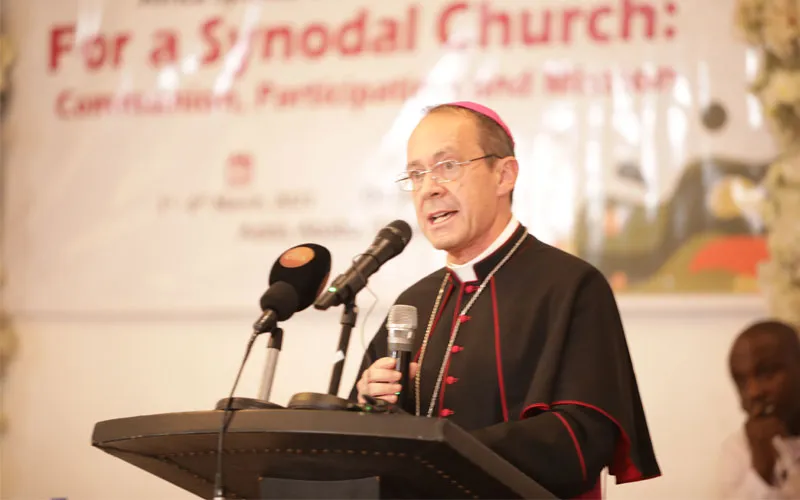Archbishop Camilleri further described the ongoing Synodal process as “a special and privileged moment in the journey we have undertaken to deepen our experience and re-discovery of the synod as a constitutive dimension of the Church, an integral part of her very nature and the specific modus vivendi et operandi of the community of believers in Jesus Christ.”
The Plenary Assembly taking place in Ethiopia, the Maltese-born Archbishop continued, “underscores the fact that this moment of reflection and sharing is, in a way, a return to our origins in order to reclaim that deep sense of togetherness, of fellowship, of communion in faith, hope and charity that is vital to our being Church.”
The 57-year-old Archbishop who also represents the Holy Father in Djibouti further said, “The synodal process we are all invited to participate in started two years ago and it might come as no surprise that a certain sense of fatigue or impatience may have begun to set in.”
Synodality, he continued, “is not a new structure or another set of formalities that must be adopted or applied: rather than being a question of what else or what more to do, it is a matter of doing the things we have been doing and carry out daily with a renewed evangelical spirit, which the concept of synodality is intended to express.”
“Synodality is meant to permeate structures, inspire events and inform processes. And it is intended to inspire people to dream about the Church we are called to be,” Archbishop Camilleri said.
He went on to highlight some of the challenges that pose a threat to the Synodal process in Africa, saying, “For the Church in Ethiopia, as well as in other African countries, recent events that have dominated our political and social reality have proven to be important challenges, as well as opportunities, to live and operate concretely in a spirit of synodality.”
“Synodality translates into solidarity, support, healing, reconciliation, overcoming hurdles to continue the journey together in peace and harmony,” he said.
Synodality, he continued, “requires of us the courage and humility to put aside the cacophony of our self-justifications and self-interests and seek what constitutes the good of all, even at the cost of having to request and receive forgiveness from our neighbor.”
Archbishop Camilleri who also serves as Apostolic Delegate in Somalia told delegates of the SECAM Plenary Assembly that their gathering is not about “delivering rhetorical speeches or seeing only problems around us or trying to rein in the voices that we consider dissonant with the mainstream or majority narrative.”
“The synodal process must not be one that creates fear, heaviness or disorientation, but which gives a sense of relief to people and brings rejoicing to their hearts,” the Apostolic Nuncio told delegates, who are expected to prepare the draft of the African Synod Document.








